Charlie as a Child: A Future Alcoholic Celebrates an Obscure Holiday
There’s a fellow I run into pretty predictably in a bar around here. His name’s Charlie. Charles, actually, but people call him Charlie because he hates it and, upon hearing it, can generally be relied on to tell you that Charlie is a name for a herpetic, menopausal dog photographer; or a Power Ranger who dies off-screen of appendicitis and is never, ever mentioned again; or a brain-damaged clown who you pay in candy to sit on a chair in front of your kids, drool through his face-paint and try to remember how to do balloon animals. Or something else in a similar vein. It’s as good a way as any to kill a few minutes.
Charlie is 71 years old, a retired marine (and though he spent some, presumably unpleasant, time in Vietnam, he’s adamant that this has nothing to do with the contempt in which he holds his nickname). He has a thick head of white hair, shaggy black eyebrows and brown eyes. ; a prominent gut; wiry arms and legs. He stands five-and-a-half feet tall. His five-foot-frame features a prominent gut accompanied by wiry arms and legs.
I was having a drink with Charlie the other night, and it was pretty dead, so he hadn’t drawn a crowd the way he sometimes does if there’s nothing worth watching on the TVs over the bar (and this time of year, in the doldrums between football seasons, there never is). He and I were crowded around a tiny, round table, having a friendly conversation about nothing in particular. Then he asked me:
“What’s today?”
“The date?”
“Yes, the date, goddammit. Do I look senile?”
“It’s the 18th.”
“The 18th.” He looked down at his hands. “I thought it might be.” Shook his head and sighed. “Christ. The 18th.” More head-shaking. More sighing.
The portentous repetitions and significant exhalations are just something Charlie does sometimes, like a man backing up to get a running start before he jumps over a gully or, in Charlie’s case, into a narrative. All you can do is wait him out.
“Did I ever tell you where I grew up?” he asked at last.
I said no.
“Well it was in Kentucky. Eastern Kentucky, not in the mountains but kind of up next to them. You haven’t heard of it. It was a tiny little place—nothing ever happened there. The kind of place that’s not worth the ink it would take to draw it on a map. But it was nice, though. Good people there. Good place to grow up. I liked it.” He paused to wet his lips. “Like any town, it had its quirks.”
He ground his ass into his seat and his elbows into the table—getting comfortable, I guess, but it looked awful.
“July eighteenth was a kind of holiday,” he said. “You woke up early—well before the sun rose—and ate a big breakfast with the family. For us, it was always pancakes—my mother made terrific pancakes. Then you headed to the park.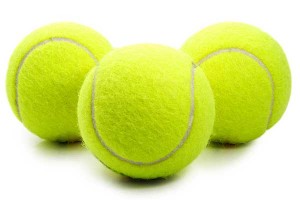
“Now like I said before, this was a pretty small town, but one thing we did have was a hell of a nice park. There were these huge beautiful trees everywhere. Some ponds you could sail a paper boat in if you wanted. Plenty of nice places for a picnic. All that kind of thing. It was a good park, is what I’m getting at. But the best part was the tennis courts—about a dozen of them, green like you wouldn’t believe—right there at the hub of it all. And on July 18, once every four years, the whole town gathered around them. Because July 18 was the day that every woman aged 65 and older was required—by law—to play tennis.” A pause. “I’ve gotta take a piss.”
I played solitaire on my phone for a few minutes until he came back and picked up where he’d left off.
“So they walked out to the park at dawn with everyone else, these old women, and when they arrived, they got paired up at random. They would all play one match. The rest of us, the spectators, found our seats in the stands and we just watched them all day long, and cheered each and every point equally, regardless of who had scored it. Competition, that was what mattered. There was something pure and uncomplicated and honorable about it. Sure, there had to be a winner and there had to be a loser, but it didn’t matter to us which was which.” He took a long, thoughtful drink and wiped his mouth with the back of his hand. “Of course, it mattered later.”
“At the end of the day, when the matches had all been played, the losers hugged their friends and their family; they waved at the crowd; and then they were loaded into trailers and hauled away into the countryside. A few hours after departure, they were left in a meadow, an annex of the town, fenced off and maintained by an obscure branch of the parks department, where the old women would spend their remaining years recapturing the innocence of their youth, running through the wildflowers; weaving them into their hair; napping in the sun. There was probably a spring or something, I don’t know. The winners were made receptionists.”
He leaned back in his chair and crossed his arms over his chest. That was that. The story was over.
I mulled it over for a while and something occurred to me. “What about the men?”
“What about them?”
“The old women played tennis and got shipped off someplace. What happened to the old men?”
“Nothing happened to them. They were just old men.”
“Well, what happened in the winter?”
“What?” He was only half-listening, too busy frowning into his now-empty glass.
“It gets cold in Kentucky. What happened to the old women in the winter?”
He looked up at me and seemed to think for a second. Then he shrugged.
“I’m sure they were fine.”
Amongst other foibles, Hank Henry cannot be trusted to use pictures of pancakes responsibly. Feel free to send him stories or questions or whatever at [email protected].


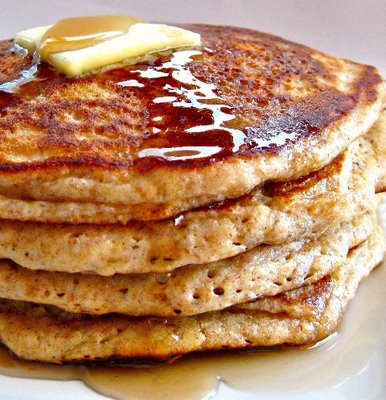

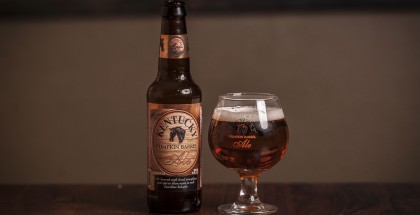
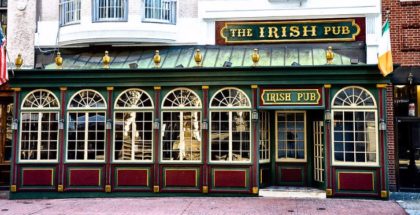
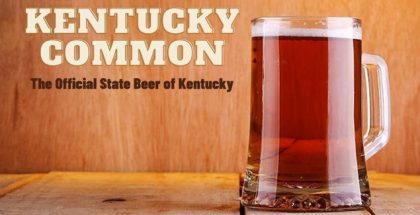

Submit a Comment